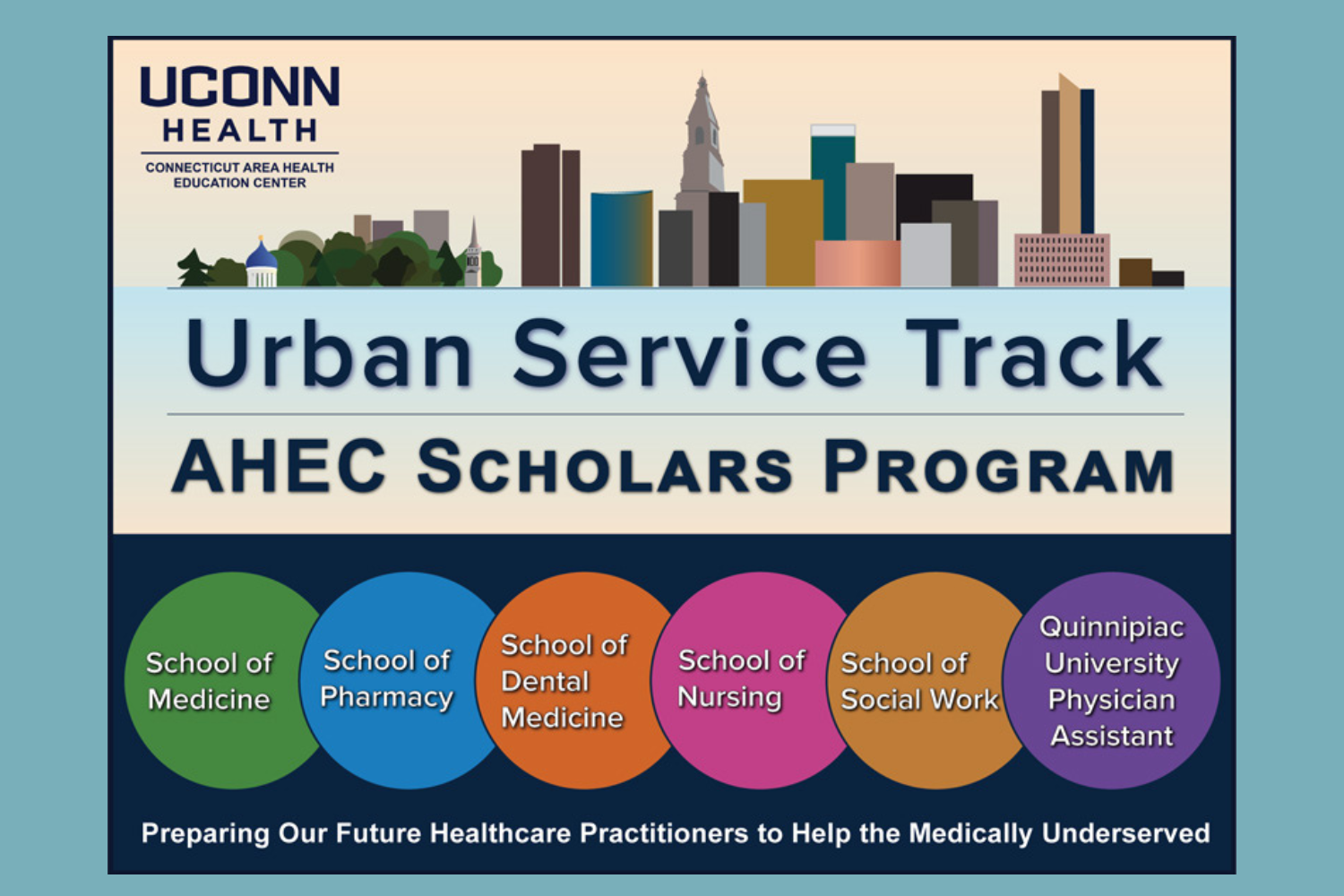UConn is looking to students for some great ideas: The plot for a novel, perhaps, a business concept, a community action campaign, or a hypothesis to be researched.
A new program for undergraduates, the UConn IDEA Grant, will provide support for individuals and small groups of students to bring their ideas to fruition.
“UConn IDEA projects are going to be projects that start with the student … and where they feel a sense of ownership from start to end,” says Margaret Lamb, director of the Office of Undergraduate Research, which will administer the program. “The student is in the driver’s seat for this.”

The program, launched this month, is open to all undergraduate students, in all disciplines, at all campuses who have at least two semesters remaining after the current one. Program organizers expect to select a dozen or so projects this year for awards of up to $4,000 each, and about 25 next year.
The new grant complements other sources of University funding for undergraduates, but is broader in scope, embracing creative, performance, entrepreneurial, and service projects, as well as more conventionally defined academic research.
“We wanted an award program with ample space for creativity, across the University spectrum,” says Lamb. “This is an opportunity to fulfill the promise of an idea.”
Jennifer Lease Butts, assistant vice provost for enrichment programs and director of the Honors Program, says the University’s current programs largely support research. “This new award greatly expands the ways in which students and their ideas can be nurtured at UConn,” she says.
A Natural Fit
The concept for the new program builds on UConn’s strong undergraduate education, a thriving enrichment and honors program, and the philosophy and pedagogy developed in UConn’s internationally recognized program on gifted and talented education.
Sally Reis, vice provost for academic affairs and an expert on gifted education, has dreamed of developing such a program at UConn for some time. “I know what works for pedagogy for academically talented students,” she says. “The most long-term effects of any activity you can do with very bright young people come from the opportunity for in-depth study.”
Reis expects the program to benefit the University as well as individual recipients of the awards. She anticipates that the UConn program will produce a brand of students who understand and value creativity, innovation, and service work, and that they will seek opportunities in the future to replicate that.
“I want very much to see UConn be known for something beyond simply graduating smart students,” she says.
This is an opportunity to fulfill the promise of an idea.
Honors student Celia Poirier, a double major in communications and art who developed the visual identity for the program, welcomes the opening up of opportunities for students in creative fields.
“Explicitly or implicitly I’m not sure, but as a liberal arts/fine arts student I was under the impression that research grants were not meant for my kind of projects,” she says. “I am graduating in May … but if I wasn’t, I would definitely apply for an IDEA Grant! I can think of a lot of students who would use this funding for creative projects like directing a play, producing a film, publishing a book, or helping a nonprofit.”
Christopher Levesque, associate professor-in-residence in the School of Business, says the chance to pursue an entrepreneurial idea through the program is consistent with the University’s growing emphasis on fostering economic opportunity. Levesque is director of the Connecticut Center for Entrepreneurship & Innovation, which offers a range of support for students, faculty, and others to develop their ideas.
Another novel feature of the program is that grants are available to students for group as well as individual endeavors (though each member of the group must apply separately).
“If four students propose a project and have $16,000 to better the community, how exciting is that?” says Reis.
From IDEA to Implementation
Applicants will be asked to pitch their idea, describe what inspired it, and explain why the work is personally meaningful and what they hope to learn from it.
“The project should demonstrate creativity and intellectual challenge,” says Lamb.
The projects will take a year to develop and implement, in four phases that are encapsulated in the acronym IDEA: Imagine, Develop, Engage, Apply. Applications are due this spring, planning will take place in the summer, implementation is targeted for the fall, and the participants will present their results the following spring.
“We encourage students to activate their imaginations and submit a proposal,” Lamb says, “but because there is a planning phase built in, they don’t have to have absolutely everything already worked out in order to have a UConn IDEA that’s fundable.”
As important as the original concept is, that is just the start.
“[Even] the greatest idea needs good planning and structure to reach a successful conclusion,” says Lamb.
Award winners will be paired with a mentor, who will help them improve their plan, test their assumptions, and provide a sounding board along the way. A small stipend is available for faculty members working with IDEA students.
The program will also reach out to alumni and other members of the University community in relevant fields statewide to work with students on their projects.
The outcome of each project will include a presentation to an audience of the student’s choice.
“Right from the beginning,” says Lamb, “we ask students to imagine an end – a presentation to a particular group of people. This will keep a student accountable for the outcome all the way.”
Each cohort of IDEA students will have opportunities for interaction among themselves both online and at a symposium in the spring – separate from their primary audience presentation – where they will share their results with each other and meet members of the next cohort, who will be identified in the fall.
“One of the things we’re trying to do at the University is encourage interdisciplinary thinking and collaboration,” says Levesque. “Whether the idea is entrepreneurial or more purely creative, being part of a cohort going through the IDEA grant program over the course of a year will help facilitate students’ projects.”
Although many universities have research opportunities for undergraduates, and some have innovation competitions, University officials say they are not aware of any program at another school that’s as comprehensive as UConn IDEA.
“Many universities support students’ research and scholarly endeavors, but I believe that the wider scope of the IDEA Grants program is a novel approach,” says Lease Butts. “It is also unique in that is has been designed as a process of idea development. Students will spend time planning and preparing for their experience with guidance from faculty and staff. They will also take what they learn and apply it, through sharing and presenting ideas to a larger audience. In that regard, we are continuing to fulfill our mission of service to the state of Connecticut by sharing the creativity and entrepreneurship of our students.”
For information on how to apply, go to the Office of Undergraduate Research website. Applications are due April 1, and the awards will be announced shortly after the end of the spring semester. Applications for the second round of IDEA Grant funding will be due in the fall.
![UConn IDEA Grant logo [ imagine / develop / engage / apply ]](https://today.uconn.edu/wp-content/uploads/2013/02/idea-grant-featured.jpg)


